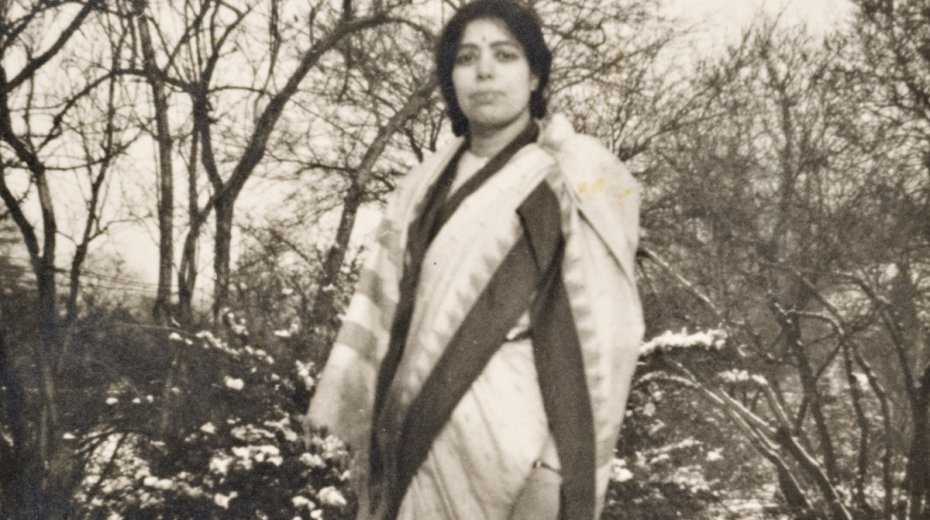Janaki Ammal Scholarships

All students who meet the eligibility criteria will receive a Janaki Ammal Scholarship
The John Innes Centre offers Janaki Ammal Scholarships to overseas postgraduate research students, who are nationals of eligible developing countries, to help enable them to study for a PhD degree at our institute.
The award covers the difference between the Overseas and UK/EU lab-based postgraduate research tuition fees (e.g. a difference of £14,090 for the 2018/19 academic year).
Each award is tenable for a full-time three or four-year PhD degree programme of study at the John Innes Centre, subject to the satisfactory progress of the student.
The Janaki Ammal Scholarship is aimed at those students in receipt of some external funding. So, students must be able to provide evidence of additional funding to cover living costs (e.g. RCUK level is £14,777 in the 2018/19 academic year) and the residual Home/EU level of tuition fee (e.g. £4,260 for the 2018/19 academic year).
Applications are welcome from students wishing to study any aspect of plant and microbial sciences the John Innes Centre is currently engaged in.
Overseas applicants from countries not covered by the Janaki Ammal Scholarship may be eligible for a John Innes Centre International Scholarship.
About Janaki Ammal
Janaki Ammal (1897-1984) was one of the first women from India to obtain a PhD in Botany (Michigan USA 1931).
She worked at the John Innes Horticultural Institution briefly in 1931 and 1935, followed by a longer period between 1940 and 1945.
This led to the publication of the Chromosome Atlas of Cultivated Plants, which she wrote jointly with the then Director, C. D. Darlington.
She ultimately returned to India to continue a long and distinguished career in science.
Eligibility
To receive a Janaki Ammal Scholarship while studying at the John Innes Centre, candidates must:
- Have completed and submitted all relevant sections of a formal application online at the University of East Anglia (UEA) with all supporting documents for a full-time PhD research degree programme at the John Innes Centre with a primary supervisor who is a Group Leader at the John Innes Centre. No separate application for the Janaki Ammal Scholarship is required
- Have completed the Research Statement on the application form and ensured two academic references are provided
- Have been shortlisted by the prospective supervisor and interviewed in person or by video conference by that supervisor, another Group Leader and the Postgraduate Research Director from the John Innes Centre
- Be in subsequent receipt of an offer of admission to register at UEA on a PhD research degree programme (other than the Rotation Programme)
- Be assessed as Overseas for UEA lab-based postgraduate research tuition fee purposes
- Be a national of one the developing countries listed
- Not hold any other source of funding that will cover the cost of the Overseas tuition fee
- Have met all conditions for admission to the UEA before admission
Note, we review our scholarships from time to time.
Applicants should check this page to ensure they are aware of current eligibility criteria, procedures, and deadlines etc., at the time of their studentship application.
Testimonials
“‘An expert in anything was once a beginner’.
I am a passionate plant biology student. Before I got this prestigious scholarship, I was so worried about covering the difference between the UK/EU and international fee rate because the studentship I won was not able to cover this difference. I am determined to pursue my dream of becoming an independent plant researcher and, thanks to this generous award, I am one step closer to my ultimate goal.”
Iqra Jamil
Eligible countries
Eligible countries for the Janaki Ammal Scholarship are listed below.
- Afghanistan
- Angola
- Armenia
- Bangladesh
- Benin
- Bhutan
- Bolivia
- Burkina Faso
- Burundi
- Cabo Verde
- Cambodia
- Cameroon
- Central African Republic
- Chad
- Comoros
- Congo
- Côte d’Ivoire
- Democratic People’s Republic of Korea
- Democratic Republic of the Congo
- Djibouti
- Egypt
- El Salvador
- Equitorial Guinea
- Eritrea
- Ethiopia
- Gambia
- Georgia
- Ghana
- Guatemala
- Guinea
- Guinea-Bissau
- Guyana
- Haiti
- Honduras
- India
- Indonesia
- Kenya
- Kiribati
- Kosovo
- Kyrgyzstan
- Lao People’s Democratic Republic
- Lesotho
- Liberia
- Madagascar
- Malawi
- Mali
- Mauritania
- Micronesia
- Moldova
- Mongolia
- Morocco
- Mozambique
- Myanmar
- Nepal
- Nicaragua
- Niger
- Nigeria
- Pakistan
- Papua New Guinea
- Paraguay
- Philippines
- Rwanda
- Samoa
- Sao Tome and Principe
- Senegal
- Sierra Leone
- Solomon Islands
- Somalia
- South Sudan
- Sri Lanka
- Sudan
- Swaziland
- Syrian Arab Republic
- Tajikistan
- Tanzania
- Timor-Leste
- Togo
- Tokelau
- Tuvalu
- Uganda
- Ukraine
- Uzbekistan
- Vanuatu
- Vietnam
- West Bank and Gaza Strip
- Yemen
- Zambia
- Zimbabwe
They are drawn from the Development Assistance Committee (DAC) list of Overseas Development Assistance Recipients (Least Developed, Other low Income, and Lower Middle Income Countries and Territories) as overseen by the Organisation for Economic Co-operation and Development (OECD) as of 1 January 2015.
Upper Middle Income Countries are not eligible.
